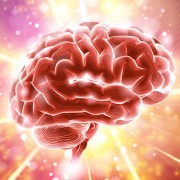End the Ban on Psychoactive Drug Research
Halibutboy Flatface stashed this in Science
Stashed in: Science!, Awesome, Drugs!, Medicine, Marijuana, Neuroscience
SciAm's editors call for more research on whether marijuana and other drugs can have helpful effects.
I'm with you. Stop the insanity:
Discovery of new psychiatric medication, whether for the treatment of depression, autism or schizophrenia, is at a virtual standstill. As just one example, the antidepressants on the market today are no more effective at reversing the mood disorder than those that first became available in the 1950s.
New thinking is desperately needed to aid the estimated 14 million American adults who suffer from severe mental illness. Innovation would likely accelerate if pharmacologists did not have to confront an antiquated legal framework that, in effect, declares off-limits a set of familiar compounds that could potentially serve as the chemical basis for entire new classes of drugs.
LSD, ecstasy (MDMA), psilocybin and marijuana have, for decades, been designated as drugs of abuse. But they had their origins in the medical pharmacopeia. Through the mid-1960s, more than 1,000 scientific publications chronicled the ways that LSD could be used as an aid to make psychotherapy more effective. Similarly, MDMA began to be used as a complement to talk therapy in the 1970s. Marijuana has logged thousands of years as a medicament for diseases and conditions ranging from malaria to rheumatism.
National laws and international conventions put a stop to all that. The Controlled Substances Act of 1970 declared that these drugs have “no currently accepted medical use” and classified them in the most stringently regulated category of controlled substances: Schedule I. The resulting restrictions create a de facto ban on their use in both laboratories and clinical trials, setting up a catch-22: these drugs are banned because they have no accepted medical use, but researchers cannot explore their therapeutic potential because they are banned.
Let the scientists study everything, and we may discover incredible new things.
YEAH SCIENCE!
In many states, doctors can now recommend medical marijuana, but researchers cannot study its effects:
The uneasy status quo leaves unanswered the question of whether the drug might help treat attention-deficit hyperactivity disorder, nausea, sleep apnea, multiple sclerosis and a host of other conditions.
The endless obstructions have resulted in an almost complete halt in research on Schedule I drugs. This is a shame. The U.S. government should move these drugs to the less strict Schedule II classification. Such a move would not lead to decriminalization of these potentially dangerous drugs—Schedule II also includes cocaine, opium and methamphetamine, after all—but it would make it much easier for clinical researchers to study their effects.
Basic research is for the benefit of us all.
The time has come to let researchers learn more.











1:33 PM Feb 03 2014